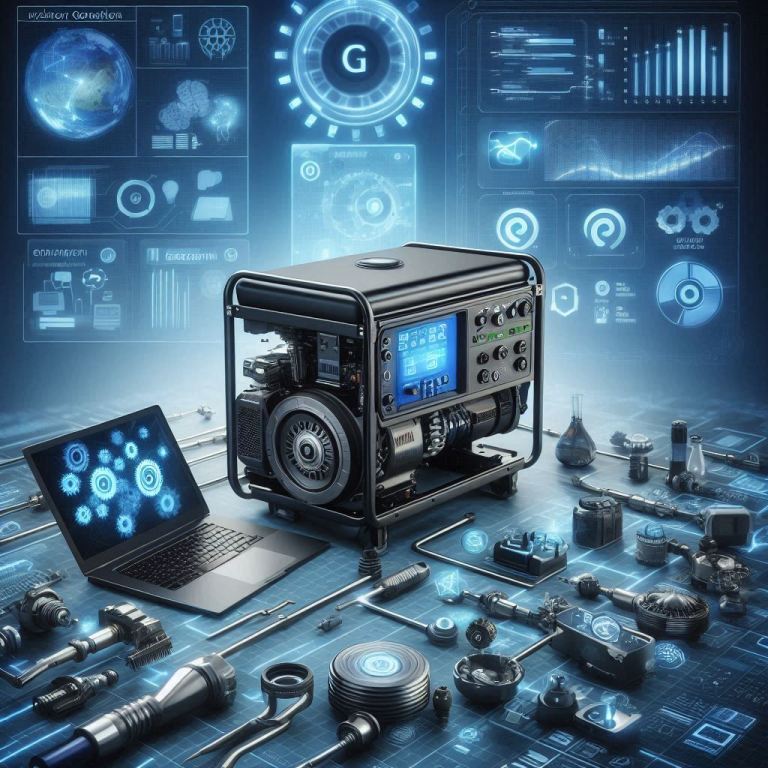Why You Need Backup Power
Power outages can strike without warning, disrupting daily life and causing significant inconvenience. Due to severe weather, equipment failure, or grid issues, losing electricity can impact everything from lighting to essential appliances. Power outages can lead to downtime, lost revenue, and damaged business equipment. For homeowners, it can mean spoiled food, interrupted work, and uncomfortable living conditions.
A generator is one of the most reliable ways to ensure continuous power during an outage. A generator for home power outage situations can provide backup electricity, keeping vital systems running until the main power is restored. This peace of mind is essential in areas prone to frequent outages, ensuring your home remains safe, comfortable, and functional even when the lights go out.
Types of Generators
Generators come in various types, each tailored to different needs. The most common models include:
- Portable Generators: These are easy to move and are typically used for short-term power outages. Perfect for camping trips, construction sites, or backyard parties where temporary power is needed.
- Standby Generators: Permanently installed and automatically switched on during outages. They provide a seamless transition and are ideal for long-term emergency use. These are often powered by natural gas or propane and can support large appliances like HVAC systems.
- Inverter Generators: These are well-known for their effectiveness and silent operation, and because of their steady power production, they are perfect for delicate electronics. They are lightweight and fuel-efficient, ideal for small-scale uses like tailgating or RV trips.
Understanding the different types of generators allows you to choose the best one that suits your specific needs. For example, homeowners looking for peace of mind during extended outages might opt for a standby generator, while those needing occasional power support may find portable generators sufficient.
Key Features to Consider
When selecting a generator, several features should be at the forefront of your decision-making process:
- Power Output: Ensure the generator can handle the wattage your devices require. Calculate your total power needs by listing all essential devices and their power consumption, then choose a generator that exceeds this requirement.
- Fuel Type: Options include gasoline, propane, and diesel. Each fuel type has pros and cons regarding availability, cost, and storage. For example, gasoline generators are standard and easy to refuel, but propane generators offer cleaner burns and longer shelf life.
- Noise Level: Some generators are designed to run more quietly than others. If you reside in a noise-sensitive environment, prioritize generators with lower decibel ratings, which are often noted in the product specifications.
- Run Time: Longer run times are essential during extended outages. Choose a generator that can operate without frequent refueling, ensuring continuous power supply during extended emergencies.
These features are crucial in selecting the right generator and ensuring efficient and effective performance during a power outage. For example, a quiet inverter generator is excellent for urban areas where noise restrictions apply, while a high-capacity standby generator can sustain a large household or business.
Installation and Maintenance
Your generator’s long-term performance depends on proper installation and regular maintenance. It’s advised to follow manufacturer guidelines closely and consider professional installation, particularly for standby models. Regular maintenance includes:
- Checking and changing oil levels as required, usually every 50-60 hours of operation for portable models.
- Inspecting and replacing air filters to ensure clean air intake and efficient performance.
- Ensuring fuel lines are in good condition, avoiding clogs or leaks that could lead to failures.
- Running the generator periodically, even during off-seasons, to keep the engine in good working order.
Consistent maintenance not only extends the life of your generator but also ensures it is ready to perform when needed most. Many owners invest in maintenance kits and adhere to a regular servicing schedule, which can prevent many common issues.
Safety Tips
Generator safety cannot be overstated. Here are a few essential tips to ensure you and your loved ones stay safe:
- Operate Generators Outside: Ensure they are used in well-ventilated areas to avoid carbon monoxide poisoning. A generator should never be operated inside or in enclosed areas like garages.
- Keep Fuel Safely Stored: Use appropriate containers and store them away from ignition sources, ensuring a safe distance from living areas.
- Install CO Alarms: These alarms are a critical safety measure for any home using a generator. They alert you to dangerous levels of carbon monoxide, adding an extra layer of protection.
Adhering to safety guidelines can significantly reduce risks associated with generator use, making it a reliable and safe solution during power outages. For instance, keeping the generator dry and protected from rain can prevent electrical hazards, ensuring safe operation.
Cost vs Benefit Analysis
Investing in a generator can be costly, but comparing the initial expenditure against potential losses during a power outage can justify the purchase. From food spoilage due to refrigerator failure to business operation interruptions, the benefits often outweigh the costs. Assessing the price of a generator and the peace of mind and convenience it offers is essential for making an informed decision.
A generator can prevent significant losses for homeowners in the event of prolonged outages. On the other hand, businesses may find that the cost of a generator is negligible compared to the potential revenue loss and operational disruptions caused by power failures. Decisions should be made considering both immediate benefits and long-term reliability.
Final Thoughts
Choosing the right generator involves considering various factors, including power needs, features, and safety. With informed choices, you can ensure you’re well-prepared for any power outage, keeping your home or business running smoothly. Purchasing a dependable generator will shield your home or place of business against unanticipated power outages.
A well-chosen generator provides peace of mind, enabling you to navigate power outages confidently. By evaluating your specific needs and the options available, you can select a generator that meets your requirements and ensures efficiency and safety.

